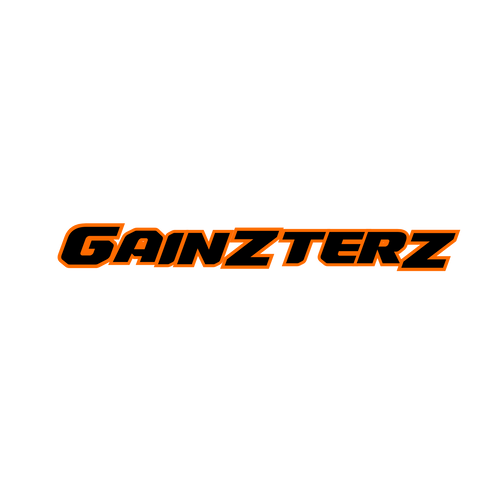What Supp? When?
Here's a detailed breakdown of recommended supplement timing based on different categories:
Morning:
- Multivitamin: Taking a multivitamin in the morning with breakfast can help fill any nutritional gaps in your diet and provide essential vitamins and minerals to support overall health and well-being.
- Omega-3 Fatty Acids: Omega-3 supplements can be taken in the morning with breakfast to support heart health, cognitive function, and joint mobility throughout the day.
- Vitamin D: Since vitamin D is synthesized by sunlight exposure, it's beneficial to take vitamin D supplements in the morning to optimize absorption. This can help support bone health, immune function, and mood regulation.
- Creatine Monohydrate: Consuming creatine monohydrate in the morning with a meal can help saturate muscle stores and support strength and power output during workouts.
- Glutamine: Glutamine can be taken in the morning, preferably on an empty stomach, to support immune function and gut health. This timing allows for optimal absorption and utilization of glutamine by the body.
Pre-Workout:
- Caffeine: Consuming caffeine 30-60 minutes before exercise can enhance alertness, focus, and performance. It's commonly found in pre-workout supplements or can be taken separately in the form of coffee or caffeine pills.
- Beta-Alanine: Beta-alanine supplementation before workouts can help buffer lactic acid buildup, delay fatigue, and improve endurance. It's best taken 30-60 minutes before exercise to allow for optimal absorption.
- Nitric Oxide Boosters: Ingredients like L-arginine, L-citrulline, or beetroot extract, which boost nitric oxide production, can be taken pre-workout to enhance blood flow, muscle pump, and exercise performance.
- Creatine Monohydrate: While creatine can be taken at any time of the day, some people prefer to include it in their pre-workout stack to maximize its benefits for strength and power output during training.
- Glutamine: Consuming glutamine before workouts may help protect muscle tissue from breakdown during intense exercise. It can be particularly beneficial for individuals engaging in prolonged or high-intensity training sessions.
Post-Workout:
- Whey Protein: Consuming whey protein immediately after a workout can help promote muscle protein synthesis, repair muscle tissue, and support recovery. It's rapidly absorbed and provides essential amino acids needed for muscle repair and growth.
- Fast-Digesting Carbohydrates: Pairing whey protein with fast-digesting carbohydrates like dextrose or maltodextrin can further enhance muscle glycogen replenishment and recovery by promoting insulin release.
- Creatine Monohydrate: Taking creatine post-workout, along with a protein and carbohydrate source, can help enhance its uptake by muscle cells and support muscle recovery and growth.
- Glutamine: Taking glutamine post-workout can aid in muscle recovery and repair by replenishing intramuscular stores depleted during exercise. It may also help reduce muscle soreness and promote faster recovery between workouts.
Before Bed:
- Casein Protein: Consuming casein protein before bed provides a slow-release protein source that can sustain amino acid delivery to muscles overnight, supporting muscle repair and recovery during sleep.
- ZMA (Zinc, Magnesium, Vitamin B6): ZMA supplements taken before bed can help promote restful sleep, support muscle recovery, and optimize hormone levels, including testosterone and growth hormone.
- Melatonin: Melatonin supplementation before bed can help regulate sleep-wake cycles and improve sleep quality, especially for individuals experiencing difficulty falling asleep.
- Glutamine: Glutamine supplementation before bed can support overnight muscle recovery and growth. As the body undergoes repair processes during sleep, providing a source of glutamine can help facilitate these processes and enhance overall recovery.
Take with Food:
- Fat-Soluble Vitamins (A, D, E, K): Since fat-soluble vitamins are absorbed more efficiently when consumed with dietary fat, it's recommended to take them with a meal containing some fat for optimal absorption.
- Fish Oil: Taking fish oil supplements with a meal containing healthy fats can enhance the absorption of omega-3 fatty acids and maximize their benefits for heart and brain health.
- Glutamine: Glutamine can be taken with meals to support digestive health and enhance nutrient absorption. Combining glutamine with food ensures that it is adequately absorbed and utilized by the body to support various physiological functions.
Supplements to Cycle:
- Stimulant-Based Pre-Workouts: To prevent tolerance buildup and maintain sensitivity to stimulants like caffeine, it's advisable to cycle off stimulant-based pre-workout supplements periodically. This can involve taking a break from these supplements for 1-2 weeks after using them consistently for a certain period.
- Creatine Monohydrate: While creatine supplementation is generally safe for long-term use, some individuals may choose to cycle off creatine periodically to assess their natural strength and performance levels. Cycling creatine for 4-8 weeks followed by a brief break can help reset baseline measurements and evaluate its ongoing benefits.
- Glutamine: While glutamine is generally safe for long-term use, cycling off glutamine supplements periodically may help prevent tolerance buildup and maintain optimal effectiveness. Cycling glutamine for 8-12 weeks followed by a brief break can allow the body to reset and potentially enhance its response to supplementation.
It's essential to remember that individual responses to supplements may vary, and consulting with a healthcare professional or registered dietitian is advisable before starting any new supplement regimen. Additionally, following recommended dosages and guidelines is crucial to ensure safety and efficacy.

